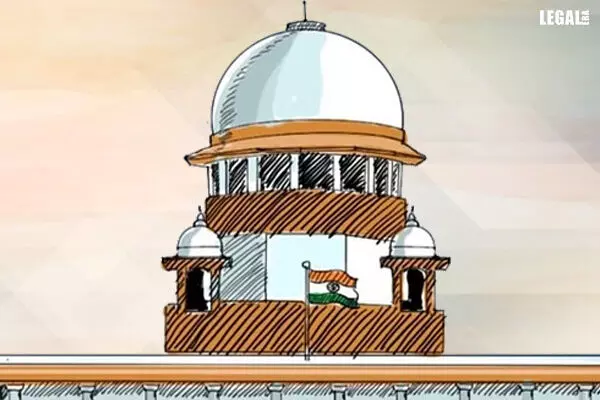- Home
- News
- Articles+
- Aerospace
- Artificial Intelligence
- Agriculture
- Alternate Dispute Resolution
- Arbitration & Mediation
- Banking and Finance
- Bankruptcy
- Book Review
- Bribery & Corruption
- Commercial Litigation
- Competition Law
- Conference Reports
- Consumer Products
- Contract
- Corporate Governance
- Corporate Law
- Covid-19
- Cryptocurrency
- Cybersecurity
- Data Protection
- Defence
- Digital Economy
- E-commerce
- Employment Law
- Energy and Natural Resources
- Entertainment and Sports Law
- Environmental Law
- Environmental, Social, and Governance
- Foreign Direct Investment
- Food and Beverage
- Gaming
- Health Care
- IBC Diaries
- In Focus
- Inclusion & Diversity
- Insurance Law
- Intellectual Property
- International Law
- IP & Tech Era
- Know the Law
- Labour Laws
- Law & Policy and Regulation
- Litigation
- Litigation Funding
- Manufacturing
- Mergers & Acquisitions
- NFTs
- Privacy
- Private Equity
- Project Finance
- Real Estate
- Risk and Compliance
- Student Corner
- Take On Board
- Tax
- Technology Media and Telecom
- Tributes
- Viewpoint
- Zoom In
- Law Firms
- In-House
- Rankings
- E-Magazine
- Legal Era TV
- Events
- Middle East
- Africa
- News
- Articles
- Aerospace
- Artificial Intelligence
- Agriculture
- Alternate Dispute Resolution
- Arbitration & Mediation
- Banking and Finance
- Bankruptcy
- Book Review
- Bribery & Corruption
- Commercial Litigation
- Competition Law
- Conference Reports
- Consumer Products
- Contract
- Corporate Governance
- Corporate Law
- Covid-19
- Cryptocurrency
- Cybersecurity
- Data Protection
- Defence
- Digital Economy
- E-commerce
- Employment Law
- Energy and Natural Resources
- Entertainment and Sports Law
- Environmental Law
- Environmental, Social, and Governance
- Foreign Direct Investment
- Food and Beverage
- Gaming
- Health Care
- IBC Diaries
- In Focus
- Inclusion & Diversity
- Insurance Law
- Intellectual Property
- International Law
- IP & Tech Era
- Know the Law
- Labour Laws
- Law & Policy and Regulation
- Litigation
- Litigation Funding
- Manufacturing
- Mergers & Acquisitions
- NFTs
- Privacy
- Private Equity
- Project Finance
- Real Estate
- Risk and Compliance
- Student Corner
- Take On Board
- Tax
- Technology Media and Telecom
- Tributes
- Viewpoint
- Zoom In
- Law Firms
- In-House
- Rankings
- E-Magazine
- Legal Era TV
- Events
- Middle East
- Africa
Supreme Court Explains Deposit of Minimum 20% Amount Not a Rule under Sec 148 of Negotiable Instruments Act

Supreme Court Explains Deposit of Minimum 20% Amount Not a Rule under Sec 148 of Negotiable Instruments Act
It can be relaxed in cases warranting a grant of suspension of sentence
The Supreme Court has observed that a deposit of a minimum 20 percent amount under Section 148 of the Negotiable Instruments Act, 1881 as a condition to suspend sentence, is not an absolute rule.
The bench comprising Justice Abhay S. Oka and Justice Pankaj Mithal observed that when an appellate Court considers the prayer under Section 389 of CrPC of an accused (convicted for an offense under Section 138 of the NI Act), it can consider if it’s an exceptional case warranting grant of suspension of sentence without imposing the condition of 20 percent deposit of the fine.
In the present case, the accused were convicted under the NI Act. On an appeal, the Sessions Court granted relief under CrPC subject to the appellants depositing 20 percent of the compensation amount.
The order was confirmed by the Madhya Pradesh High Court stating that relief of suspension of sentence under CrPC could be granted only by directing the accused to deposit a minimum of 20 percent of the compensation amount.
The apex Court cited the observations made in the Surinder Singh Deswal Alias Colonel S.S. Deswal and Others v. Virender Gandhi (2019) 11 SCC 341 case.
It held, "A purposive interpretation should be made of Section 148 of the NI Act. Hence normally, the appellate Court will be justified in imposing the condition of deposit as provided in Section 148. However, in a case where the appellate Court is satisfied that the condition of a 20 percent deposit will be unjust or imposing such a condition will amount to a deprivation of the right of appeal of the appellant, an exception can be made for the reasons specifically recorded."
The Judges noted that neither before the Sessions Court nor before the High Court, the appellants made a plea that an exception may be made in the cases and the requirement of deposit or a minimum of 20 percent of the amount be dispensed with.
Thus, while directing the High Court to reconsider the case afresh, the bench ruled, "When an accused applies under CrPC, he normally applies for grant of relief of suspension of sentence without any condition. Therefore, when a blanket order is sought by the appellants, the Court must consider whether the case falls in exception or not. In these cases, both the Sessions Courts and the High Court proceeded on the erroneous premise that a deposit of a minimum 20 percent amount is an absolute rule, which does not accommodate any exception.”



